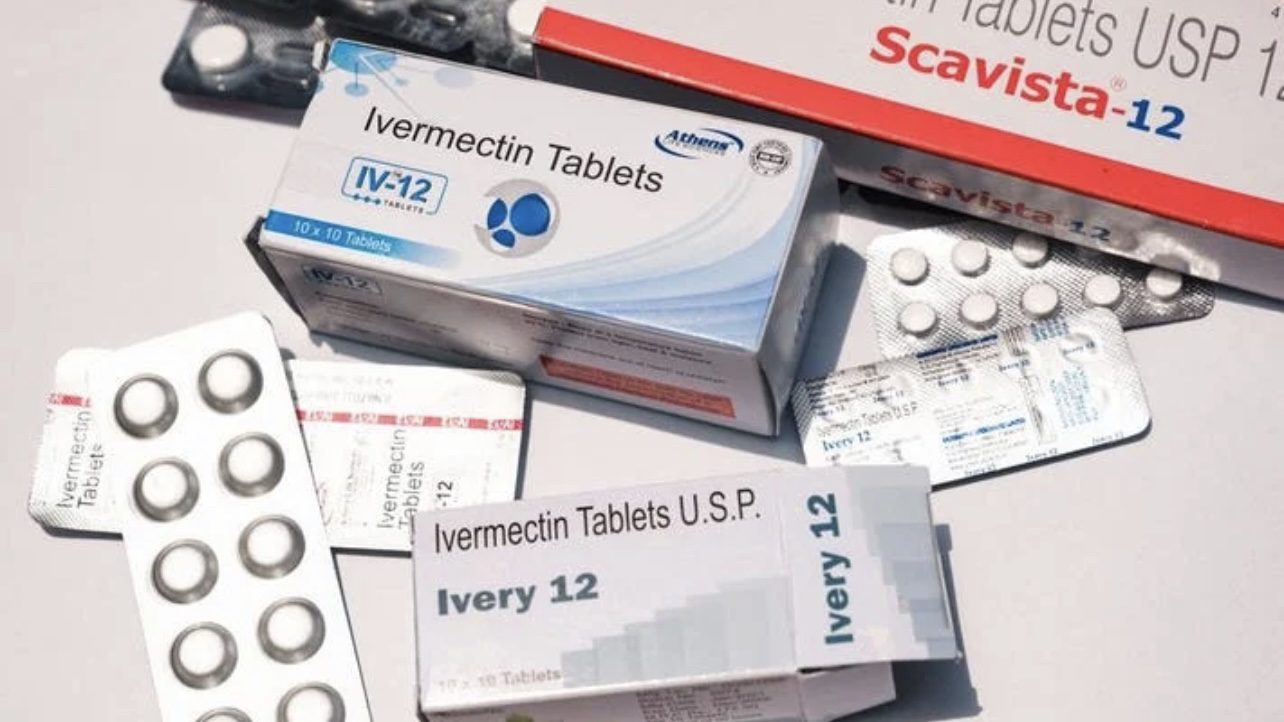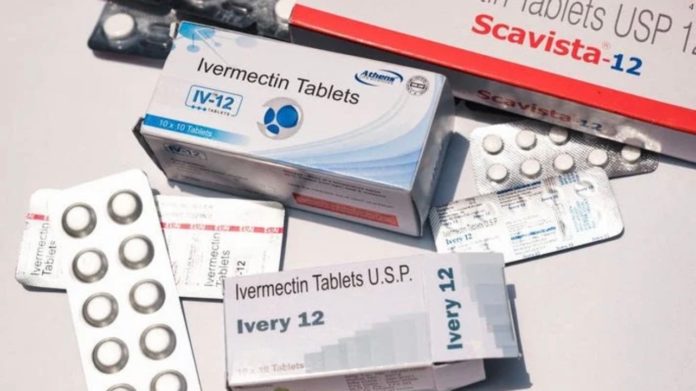
Photo by Soumyabrata NURPHOTO VIA GETTY IMAGES
The Office of the Attorney General in Nebraska issued an opinion Friday in response to the request of the Nebraska Department of Health and Human Services that states there’s no “clear and convincing evidence that a physician who first obtains informed consent and then utilizes Ivermectin or hydroxychloroquine for COVID-19 violates the UCA (Nebraska’s Uniform Credential Act).”
Nebraska Attorney General Doug Peterson together with his Solicitor General and Assistant Attorney General issued their opinion in response to a request by Nebraska Department of Health and Human Services CEO, Dannette Smith. She wanted the AG’s office to examine carefully whether doctors could face legal action or be subject to discipline if they prescribed the meds for COVID treatment.
“Allowing physicians to consider these early treatments will free them to evaluate additional tools that could save lives, keep patients out of the hospital, and provide relief for our already strained healthcare system,” AG Doug Peterson wrote.
The Office of AG pointed to multiple medical journal articles, research, and case studies. They mentioned the study from Lancet that was later on retracted because of its flawed statistics regarding the use of HCQ.
After receiving your question and conducting our investigation, we have found significant controversy and suspect information about potential COVID-19 treatments. A striking example features one of the world’s most prestigious medical journals–the Lancet. In the middle of the COVID-19 pandemic, the Lancet published a paper denouncing hydroxychloroquine as dangerous. Yet the reported statistics were so flawed that journalists and outside researchers immediately began raising concerns. Then after one of the authors refused to provide the analyzed data, the paper was retracted, but not before many countries stopped using hydroxychloroquine and trials were cancelled or interrupted. The Lancet’s own editor in chief admitted that the paper was a “fabrication, “a monumental fraud,” and “a shocking example of research misconduct in the middle of a global health emergency.
Because of conflicting data on the treatments by the principal authors, “We find that the available data does not justify filing disciplinary actions against physicians simply because they prescribe ivermectin or hydroxychloroquine to prevent or treat COVID-19,” the opinion said.
Office of AG also used the study from the Mahmud and Niaee research team and many more about Ivermectin’s role as prophylaxis.
Moving beyond ivermectin’s role as a prophylaxis, other studies have demonstrated its potential as a COVID-19 treatment. The Mahmud study–a CT that explored ivermectin as an early treatment for 363 individuals–concluded that “patients with mild-to-moderate COVID-19 infection treated with ivermectin plus doxycycline recovered earlier, were less likely to progress to more serious disease, and were more likely to be COVID-19 negative on day 14. And Niaee’s research team found that ivermectin can help even hospitalized patients. That group conducted a “randomized, double-
blind, placebo-controlled, multicenter clinical trial” with 180 hospitalized patients diagnosed with COVID-19. They concluded that ivermectin “reduces the rate of mortality and duration of hospitalization in adult COVID-19 patients,” and the improvement of other clinical parameters showed that the ivermectin, with a wide margin of safety, had a high therapeutic effect on COVID-19.”
The office of AG even attacked the company, Merck, on their agenda.
Why would ivermectin’s original patent holder go out of its way to question this medicine by creating the impression that it might not be safe? There are at least two plausible reasons. First, ivermectin is no longer under patent, so Merck does not profit from it anymore. That likely explains why Merck declined to “conductI] clinical trials” on ivermectin and COVID-19 when given the chance.
Second, Merck has a significant financial interest in the medical profession rejecting ivermectin as an early treatment for
COVID-19. “[The U.S. government has agreed to pay [Merck] about $1.2 billion for 1.7 million courses of its experimental COVID-19 treatment, if it is proven to work in an ongoing large trial and authorized by U.S. regulators.”That treatment, known a “molnupiravir, aims to stop COVID-19 from progressing and can be given early in the course of the disease.” On October 1, 2021, Merck announced that preliminary studies indicate that molnupiravir “reduced hospitalizations and deaths by half,” and that same day its stock price “jumped as much as 12.3%.” Thus, if low-cost ivermectin works better than–or even the same as-molnupiravir, that could cost Merck billions of dollars.
You can read the rest of the opinion here:
Nebraska AG Issues Opinion on Doctors Prescribing HCQ and Ivermectin for COVID Treatment Will Not Face Puni… by Jim Hoft on Scribd
The post Nebraska AG Issues Opinion on Doctors Prescribing HCQ and Ivermectin for COVID Treatment Will Not Face Punishment appeared first on The Gateway Pundit.


